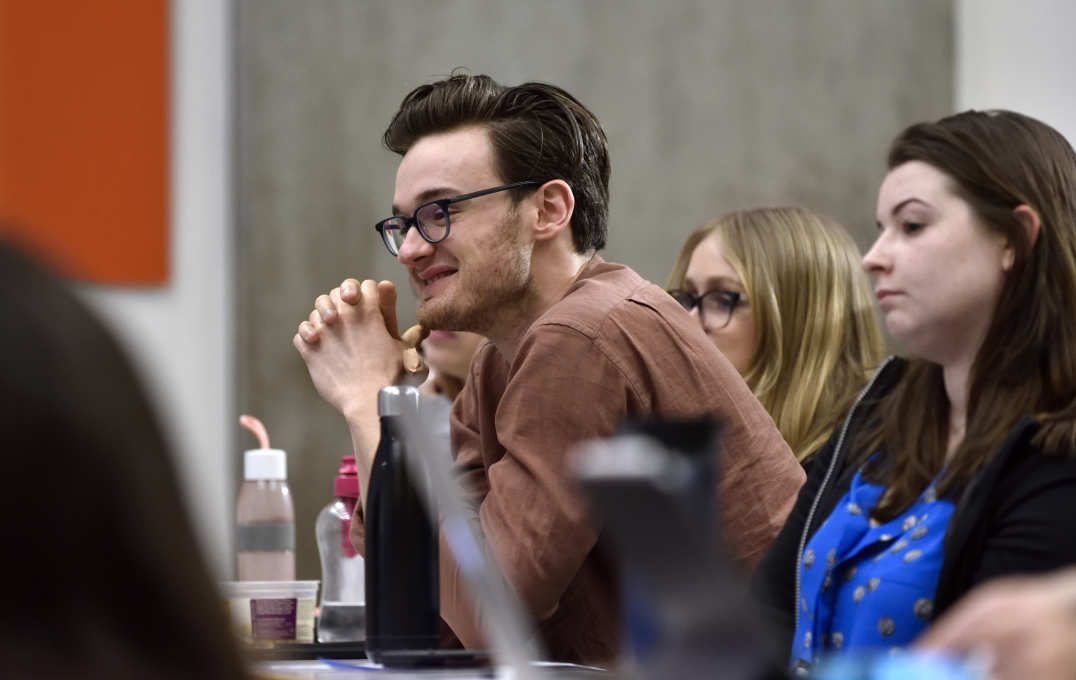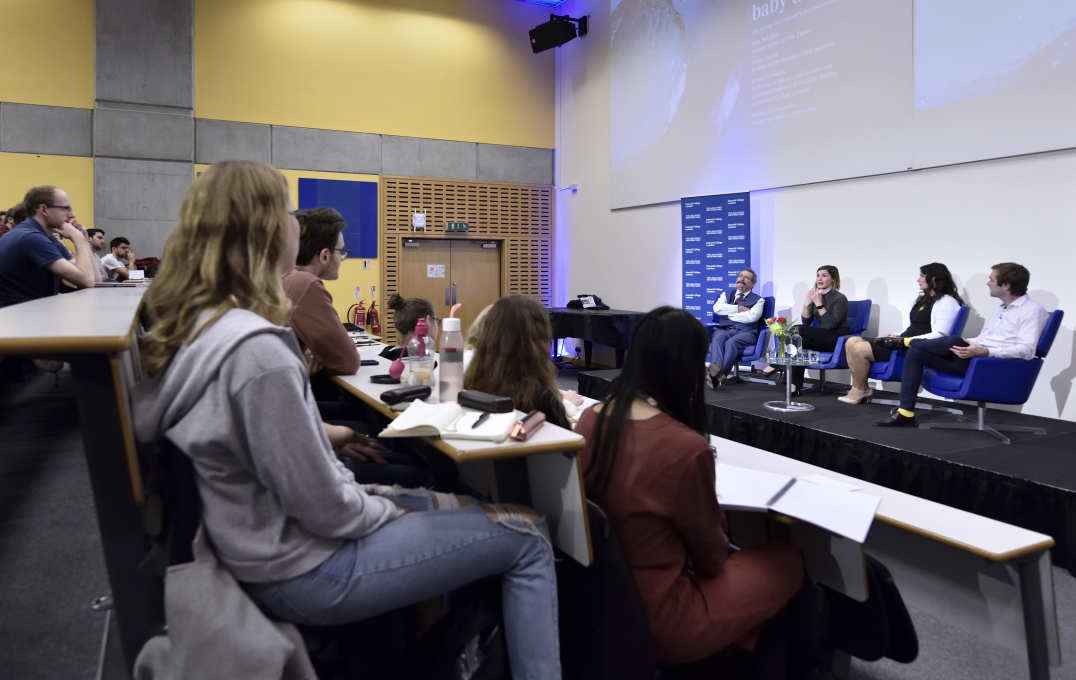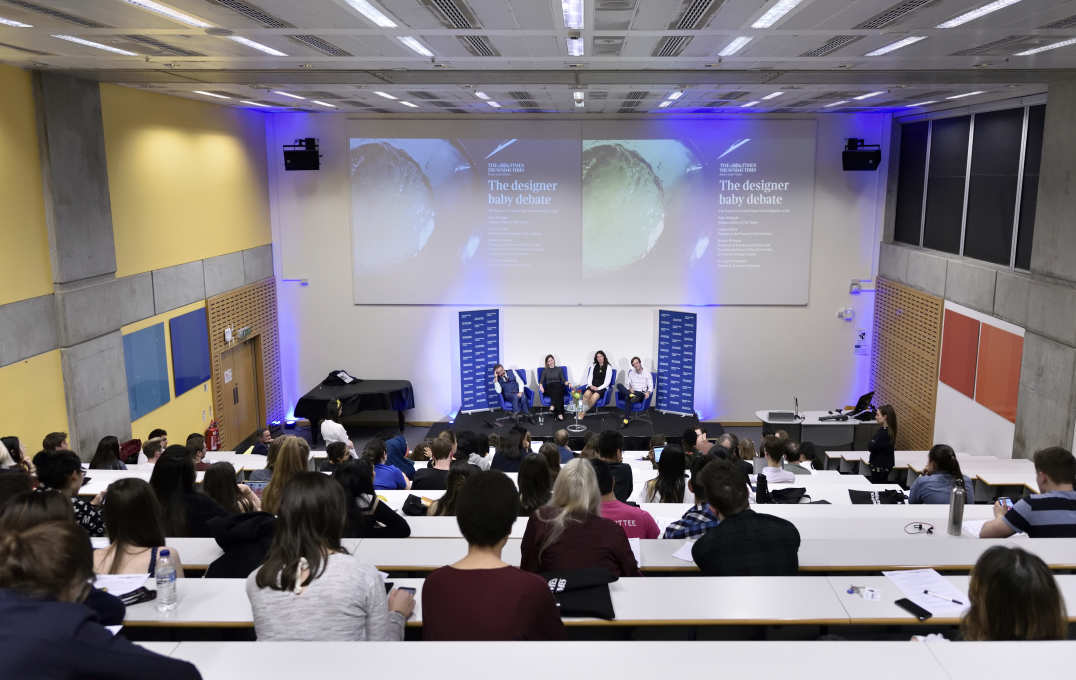Utopia or dystopia: Researchers debate the future of gene editing embryos
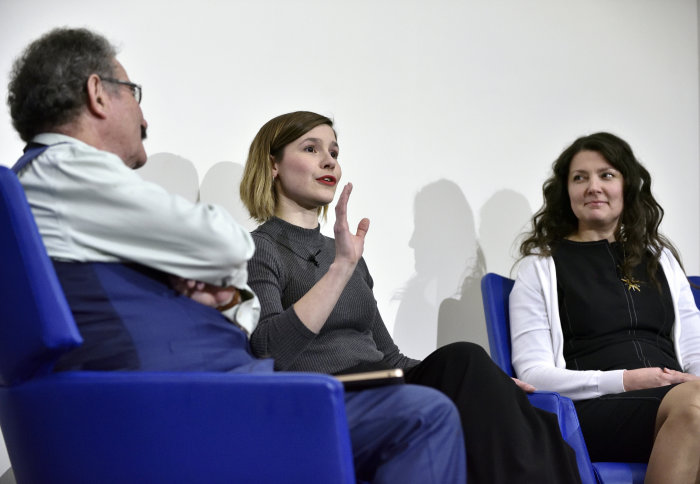
Dr Güneş Taylor was joined on the panel by Dr Inga Prokopenko, Tom Whipple and Prof Robert Winston
Scientists discussed the ethics of CRISPR-Cas9 as part of a partnership event for Imperial students with The Times.
The gene editing tool CRISPR-Cas9 has the potential to transform the future – but will it be for the better of humanity?
On February 26, leading scientists from Imperial and the Francis Crick Institute debated how to harness its power while avoiding the ethical perils.
The panel was hosted as part of Imperial’s partnership with The Times. The year-long programme of activities is led by students to stimulate debate, provoke curiosity and explore the future of science, technology and culture.
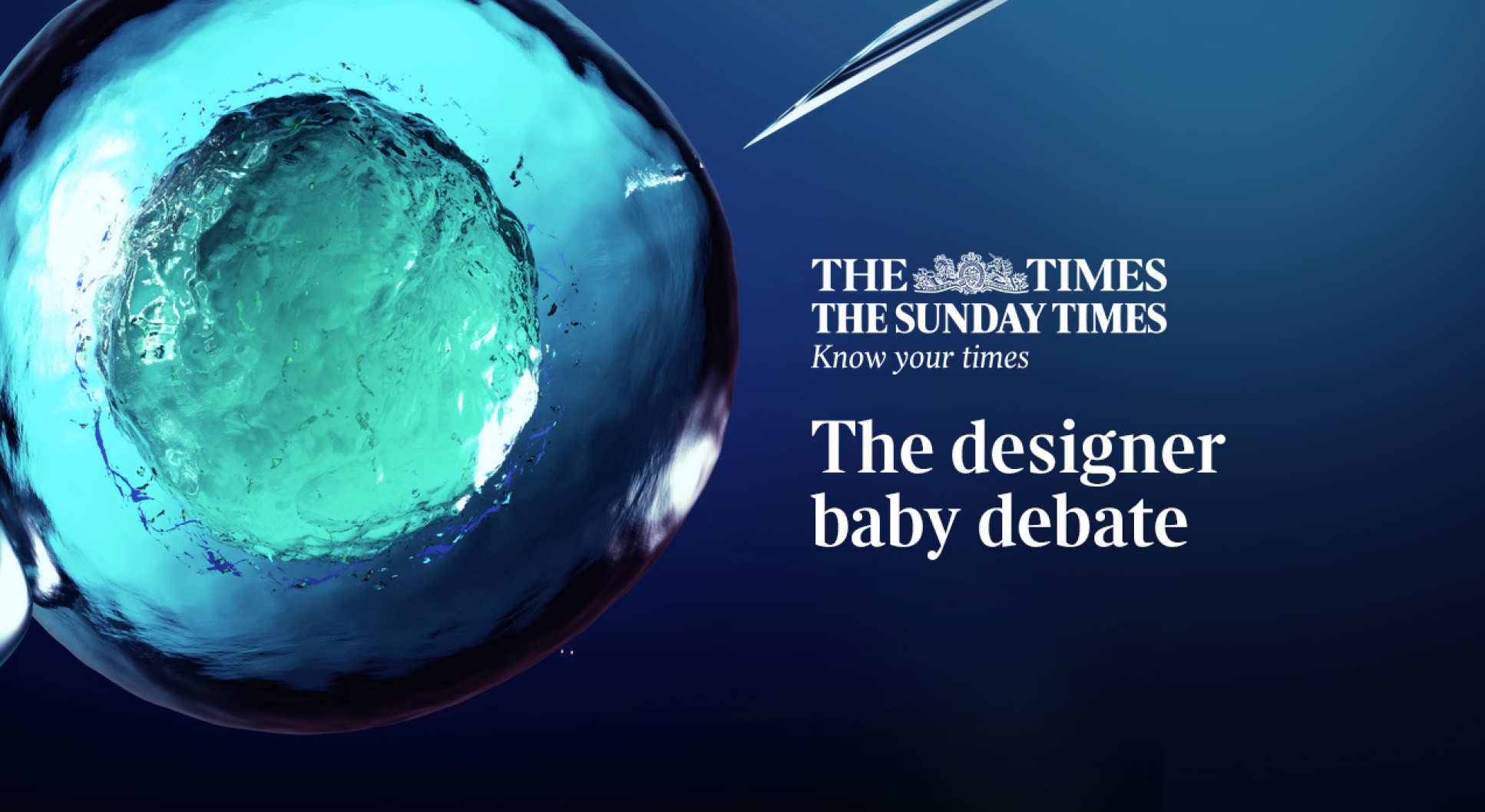
Who owns our genes?
The Times Science Editor Tom Whipple opened the panel by asking speakers Dr Günes Taylor, Dr Inga Prokopenko and Professor Robert Winston what they envisioned as a utopian or dystopian future with this technology.

In an ideal world for Dr Günes Taylor, a Postdoctoral Training Fellow at The Francis Crick Institute, research reaches a point of absolute certainty where there are no risks.
She told the audience: “I imagine a future far, far away from here where we already know our genomes entirely. We know it from back to front like a book. We understand what’s going on and we treat it like a catalogue.”
Her greatest fear is not that research stops altogether, but that it becomes entirely commercialised. She worries about it only being available to a small group who use it to their own ends.
CRISPR-Cas9 is a tool that allows researchers to edit strands of DNA. The technique relies on cutting the DNA and then changing the genetic code as the strands are repaired.
It is an accessible tool – in cost, ease and precision – with widespread applications from drug discovery to the gene editing of embryos.
While much of the panel session focused on the future of CRISPR-Cas9, the debate on using it in embryos is playing out now.
The first CRISPR babies
In November, Chinese researcher He Jiankui announced he had created the first gene edited babies. He said he used CRISPR-Cas9 to edit the embryos of twin girls in order to prevent them from being infected with HIV. The full details of the experiment or its success are unclear.
In the midst of this case and the rapidly advancing technology, the question of regulation is top of mind.

Robert Winston, Professor of Science and Society and Emeritus Professor of Fertility Studies at Imperial, said that international regulation is not the answer because laws and their enforcement differ across borders. Instead, he said scientists must build up “normative values” through international collaboration to create a sense of ethics and transparency among researchers.
Professor Winston said: “We have to approach these techniques which are essentially very powerful with huge humility.”
Many scientific advances have had downsides that were not recognised at the time, he said pointing to the examples of lasers and nuclear weapons.
Where is the line?
Panelists agreed that He Jiankui clearly violated ethical standards but were divided on how gene editing research should move forward.
Beyond the technical constraints of CRISPR-Cas9 are broader values motivating the gene editing of embryos.
Students in the crowd raised questions about the fallout of a widening divide between the rich and the poor, further stigmatisation of people with autism or Down’s syndrome, and issues of consent for an unborn child.
In each case, the debate has been born out before with questions of access to resources, genetic screening or abortion, the speakers said.
However, with the capabilities and stakes of CRISPR-Cas9, society has to face these “uncomfortable questions” with new scrutiny.
Dr Taylor said: “We should not drive this debate underground because it’s not possible to put it back in Pandora’s Box.”
–
The next event in the Times series at Imperial will be in April. Watch this space for details.
Article text (excluding photos or graphics) © Imperial College London.
Photos and graphics subject to third party copyright used with permission or © Imperial College London.
Reporter
Juanita Bawagan
Centre for Languages, Culture and Communication
